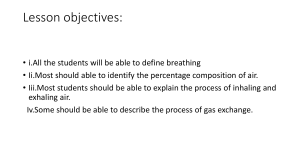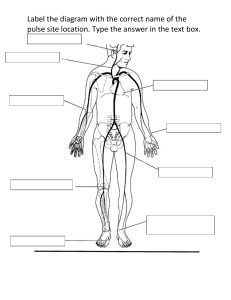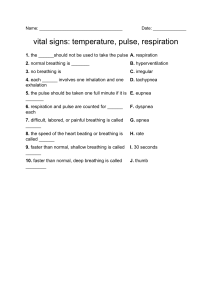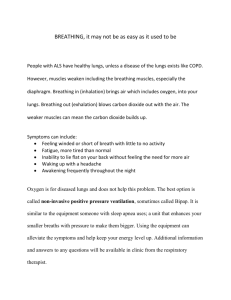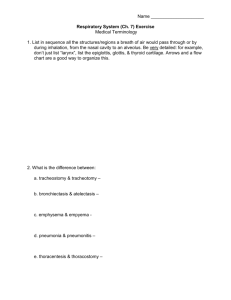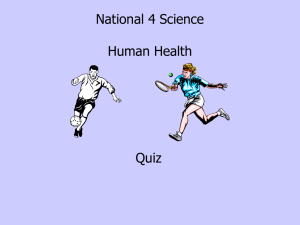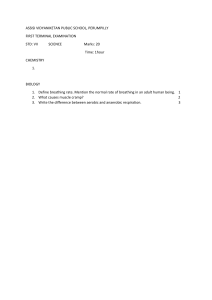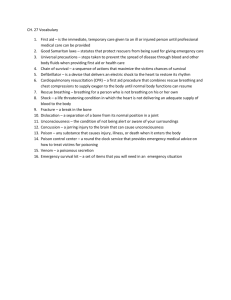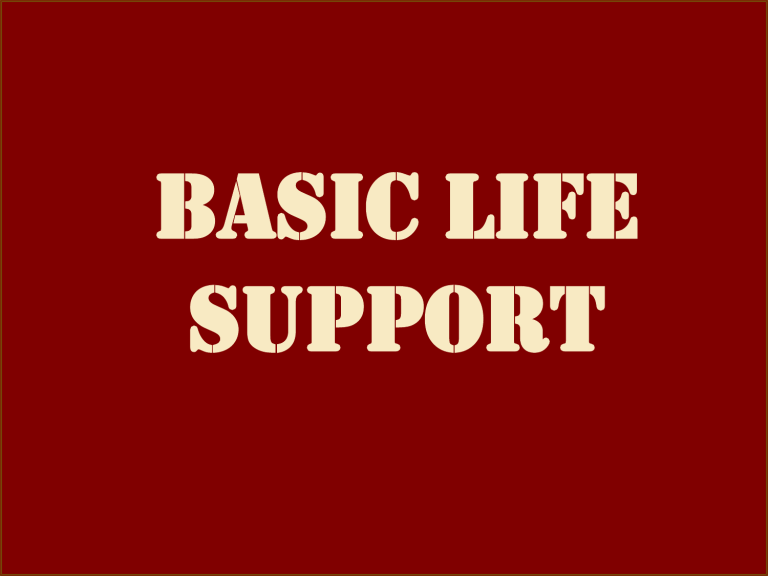
BASIC LIFE SUPPORT “ Better to know _____ and not need it, Than need _____ and not know it.” STAR OF LIFE BRANCHES: 1. DETECTION 2. REPORTING 3. RESPONSE 4. ON-SCENE CARE 5. CARE IN TRANSIT 6. TRANSFER TO DEFINITIVE CARE Definition - is the level of medical care which is given to patients with life threatening illness or injury. - generally does not include the use of drugs or medical equipment. Circulation – provide an adequate supply of blood to tissue, specially critical organs, so as to deliver oxygen to all cells and to remove metabolic waste. Airway – the protection and maintenance of a clear passageway for gases (O2 & CO2) to pass between the lungs and the atmosphere. Breathing – inflation and deflation of the lungs via the airway. CARDIO PULMONARY RESUSITATION Rule of 3 in survival 3 mins w/o air 3 days w/o water 3 weeks w/o food Cardio ~ Heart Pulmonary ~ Lungs Resuscitation a. (-) pulse (-) breathing ~ Compression/ Rescue Breathing b. (+)pulse (-) breathing ~ Rescue Breathing c. Recovery Position I. II. Situational Awareness: a. Scene Safety (80% Rescuer - 20% Victim) ~ Scene Unsafe? b. Personal Safety – B.S.I. ~ Body Substance Isolation – P.P.E. ~ Personal Protective Equipments (goggles, face mask, surgical gloves) c. Introduce Yourself General Impression: a. Adult, Child or Infant b. Tap the shoulders ~ Hey! Hey! Hey! Are you ok? 3x c. Unresponsive? (seek help from bystanders) “Activate EMS and get back to me in case I will be needing your help” d. Check for pulse/ rise and fall of the chest e. Proceed immediately to CPR ~ CAB How to locate: * 2 fingers above the xiphoid process * Between the jugular notch & the xiphoid process Correct hand position a. Heel of the dominant hand must be on the center line of the sternum The non-dominant hand must overlap the dominant hand c. Both elbow should be locked Correct body position a. Align your body after Correct Hand Position has been established b. Stay as close as possible to the patient c. Position yourself directly over the patient NOTE!!! Make sure the Victim is in a Stable/ Rigid Surface b. “ Push Hard!, Push Fast!” Adult 60 to 100 Pulse Rate(beats/min) ~ Respiratory Rate (breaths/ min) ~ 12 to 20 Depth of Compression ~ 2 inches Mode of Compression ~ 2 hands Ratio (Compression : Rescue Breathing) ~ 30:2 Number of Cycle/s ~ 5 Children Infant 70 to 150 100 to 160 15 to 30 2 inches 1 hand 30:2 5 25 to 50 1 ½ inch 2 fingers 30:2 5 When do we stop CPR? S – Spontaneous Breathing T – Transfer of Care O – Over Exhaustion P – Physicians Take Over W – When the Scene is not Safe to continue QUESTIONS???
